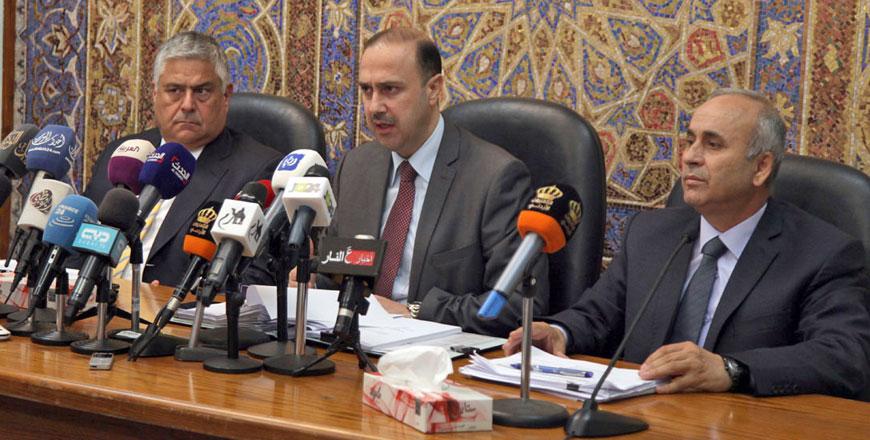You are here
Moody’s says new tax law vital for Jordan’s credit rating
By Mohammad Ghazal - Jun 04,2018 - Last updated at Jun 06,2018
AMMAN — Jordan’s income tax draft law will enable the Kingdom achieve a “positive credit rating” and enhance ongoing fiscal reforms in Jordan, according to a report by credit ratings agency Moody’s.
The report, a copy of which was obtained by the Jordan Times on Sunday, indicated that the bill would help reduce public debt, as it would increase revenues by JD300 million, or about 4 per cent of 2017 revenues and around 1 per cent of the gross domestic product.
“The bill would help enhance fiscal stability and reduce the financial deficit to 1.9 per cent of the total GDP by 2019,” the report indicated.
The draft law, the agency indicated, would help contain tax evasion, which reaches around 80 per cent in some sectors.
According to the agency, Jordan’s current credit rating is B1 (stable). It commended the establishment of a financial investigations unit as stipulated by the law, and the stiffening of penalties that will help curb tax evasion by both individuals and corporations.
The credit agency highlighted that Jordan is home to 1.4 million Syrian refugees, representing some 20 per cent of the population of Jordan, and that the rise in population resulted in increased government expenditure on social services amidst a decline in foreign grants.
The bill, it said, would help reduce the ratio of public debt to GDP to 82.2 per cent by 2021, from 95.3 per cent at the end of 2017.
“Credit positive means that Jordan is on track with the fiscal adjustment and structural reform programme. This is very important for creditors, and reflects the commitment to reduce deficit and debt as a per cent of GDP,” Minister of Finance Omar Malhas told The Jordan Times on Sunday, adding that the report could also signal that Jordan’s credit rating would improve.
Referring to the bill, the minister said: “This is an important reform that will broaden the tax base in an efficient and more equitable manner. The proposed reform would also help shift the balance of fiscal adjustment away from taxing consumption [which tends to hurt the poor and most vulnerable] towards taxing income, especially from those with greater capacity to pay.”
“It also removes distortions and loopholes, and broadens the tax base for corporations, while simultaneously protecting some specific sectors that have been most affected by adverse regional conditions and by the removal of a non-WTO-compliant export subsidy,” said Malhas.
“Critical to the success of the proposed reform will be the strict implementation of measures to enhance tax administration, as well as measures to lessen incentives and increase penalties for tax evasion,” he added.
The current draft law, which triggered nationwide protests across the Kingdom involving thousands of Jordanians, exempts families whose yearly income does not exceed JD16,000 and removes an additional exemption of JD4,000 that was given to families in case they provided bills for medical treatment or education.
The country’s professional associations will hold another strike on Wednesday, despite an announced deal with the government on Saturday that dialogue would continue.
The bill mainly focuses on three aspects: improving tax collection, curbing tax evasion and boosting tax revenues, which are expected to increase by JD300 million annually.
The proposed law seeks to increase the number of income tax payers from 5 per cent to 10 per cent.
It re-labels tax evasion from a misdemeanour to a felony with harshened penalties of imprisonment and financial fines.
Related Articles
AMMAN — The government on Monday endorsed the income tax draft law and said it will refer it to the Lower House on Tuesday to get it through
AMMAN — Moody’s Investors Service on Thursday affirmed Jordan’s B1 credit rating.
AMMAN — Moody's Investors Service affirmed Jordan's long-term issuer and senior unsecured ratings at B1 and maintained the stable outlook fo


















